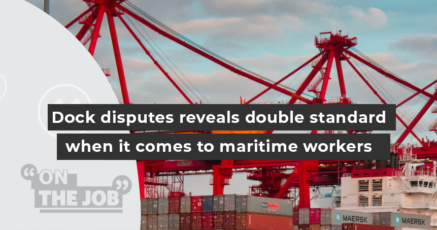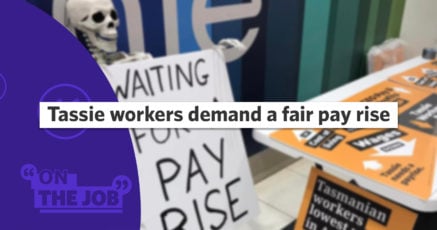Talking loudly and saying nothing.
It’s an art form that has been perfected by Prime Minister Scott Morrison since he moved into The Lodge.
He was at it again when he delivered the opening address at this week’s Women’s Safety Summit.
“Right now, too many Australian women do not feel safe. And too often, they are not safe and that is not okay,” said Morrison in his address.
“There is no excuse and sorry doesn’t cut it.
“They are not safe at home. They are not safe at work. In broad daylight, you are not safe. In public space, you are not safe. You are not safe here in this place, even this place where I speak to you from today [Parliament House], are not always safe.
“Our country must continue to change.
“And there is much we must continue to do.
“This is everybody’s business – men have a large part to play, as do families, friends, businesses, sporting organisations, media, education providers, community organisations, prime ministers.
“I want all women, every girl, in this nation to live without fear. That’s liberty.
“I want their humanity, their dignity, their innate worth as a human being and the freedoms to which they’re entitled, to be respected.
“I want all women and girls to walk in this world, our nation, confident that they are safe to live the life they want to live. That they choose to live.”
So, the big picture rhetoric is all there. But was there bold, significant, transformative action to match the sentiments expressed by Scott Morrison?
Not a chance.
Labor’s Shadow Minister for Women, Tanya Plibersek, outlined the frustration many women feel about government inertia on the issue of women’s safety.
“The problem is after eight years, we’ve seen a whole lot of areas where we could have improved, could have done better. Actually, by international standards, we’ve gone backwards on rankings for women’s economic equality, for women’s safety and health,” Plibersek told ABC Radio Melbourne.
“We know that wages and conditions for low-paid workers have got backwards, childcare’s cut, Medicare, schools – there are areas where we should be doing better, where we are actually going backwards. This government wanted victims of domestic violence to drain their own superannuation before they received any government assistance. We have such opportunity, we know what we need to do,”
Sophie Ismail is Legal and Industrial Officer, Gender Equity, with the ACTU. She told On the Job that the Summit on Women’s Safety was a huge disappointment.
“It’s pretty much been universally panned by women and other advocates in the sector who have seen that this was not much more than a webinar with no real opportunity for meaningful participation by advocates or frontline workers, or unions.”
The Summit took place just a week after the Sex Discrimination and Fair Work (Respect at Work) Amendment Bill 2021was passed into law. This was a Bill created in response to the recommendations made by the Sex Discrimination Commission’s Respect@Work report.
That report was delivered to the Government in January last year, who then sat on it for months. For Ismail, this inaction further highlights the Morrison Government’s lethargic approach to the issue.
“That report was made public in March 2020. They then did nothing at all with it,” she explained.
“That means that the then Attorney General, Christian Porter, didn’t even pick up the phone to the Sex Discrimination Commissioner, and thank her for the report or ask to meet with her about it. So, it literally sat gathering dust.
“Finally, they were forced to act by the allegations that were coming out of Parliament House by Brittany Higgins and others who bravely stood up and told their story.”
“The Government have only accepted six out of the 55 recommendations in this report. So those are the facts.”
There are many issues that remain unaddressed when it comes to Women’s Safety, but for Sophie Ismail and others within the union movement, legislating for 10 Days Family and Domestic Violence Leave is a matter of critical importance in assisting women to break the cycle of violence they may be trapped in.
“This is particularly important around the time of trying to leave a violent relationship. And we’ve spent a lot of time with frontline workers work on a daily basis with women who are trying to flee these relationships,” said Ismail.
The key thing that these frontline workers are telling us is that it costs a huge amount of money, and it takes a huge amount of time [to make a break from a violent relationship or abusive environment].”
“Leaving a violent relationship is a particularly dangerous time for women, violence often escalates. So, it needs to be very carefully planned out. Women in these situations need the support of the services, all of which are operating during working hours.
“They often have to go to court, seek advice from lawyers, and speak with police. They have to go to health services, they need time off work, and they need that time to be paid because a drop in income is very dangerous at that critical moment in time.”
Sophie Ismail believes the mood for change is fierce, and that the next Federal Election looms as a watershed moment in the camping to improve women’s safety.
“The ALP has committed to passing legislation for 10 days’ paid family and domestic violence leave. The Business Council of Australia has also come out in support of it.
“We will continue to work with people who put their support on the record to put the pressure on the Government to pass this vital reform.”








SHARE:
Women’s safety – it’s all talk and no action from Scott Morrison